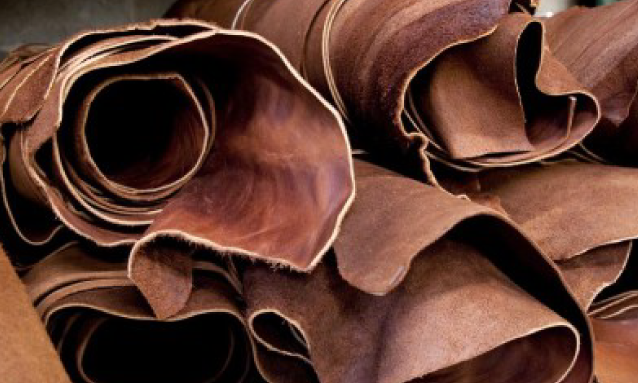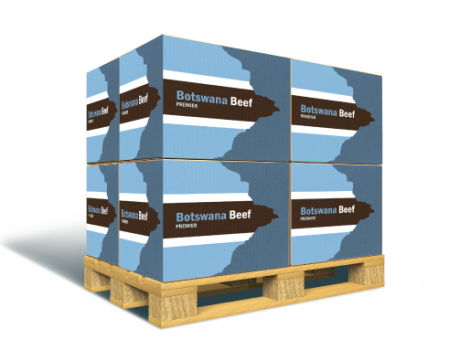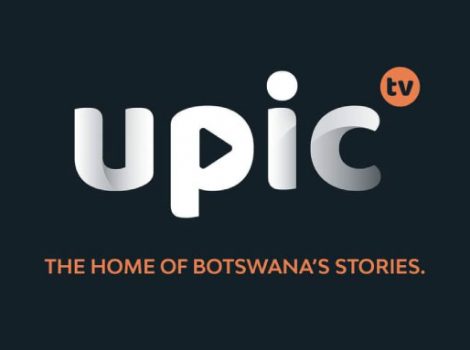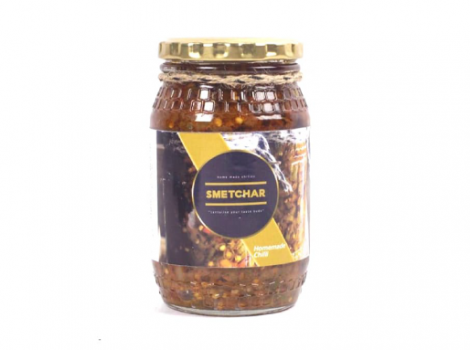
4 November 2023
Looking to put the LEA into local leather, Local Enterprise Authority (LEA) has teamed up with the European Union (EU) on an exciting new project.
In preparation for the upcoming leather park in Lobatse, expected to be operational by 2025, the enterprise intends to capacitate local enterprises in leather work and production. Working in collaboration with their foreign friends from the north, LEA has identified 15 individuals from five enterprises in textile, manufacturing and fashion for training.
The selected group will embark on a three-month course, with the programme covering: skills training, machine operation and production of industrial leather personal protective equipment. Speaking on the sidelines of a visit by EU Deputy Ambassador to Botswana and SADC, Myriam Ferran-en to check the project’s progress, LEA Chief Operations Officer (COO), Fana Kelebogile revealed the gloves used in mines have been identified as the first assignment.
Kelebogile explained the aim is to grow a fully fledged leather industry, which will create jobs opportunities and ultimately, wealth for locals.
“Since the leather park is going to tan skin and hides into finished leather, we need to have enterprises which can add more value to the leather. That’s where we establish Small, Micro and Medium Enterprises (SMMEs) in the leather value chain since government is currently advocating for value chain development.
We want entrepreneurs to tap into value chain opportunities in the leather industry, thereby creating jobs – we don’t want to export jobs by exporting the finished leather!” stated Kelebogile.
Launched last month, the venture is currently housed at the LEA leather incubator in Gaborone, where two factory shells have been set aside.
“We are working on the production of leather gloves to have capacity and skills in making leather gloves. We started with this product because there is an available market locally from various mines. We engaged Botswana Chamber of Mines (BCM), who are working with us on this project because of market access, lobbying and advocating for the marketing of these gloves from these companies after the project.
All mines use leather gloves but unfortunately they are imported; there is an opportunity for our enterprises to produce locally for the mines,” stressed Kelebogile, indicating 200, 000 pairs of gloves are consumed by the mines every year.
“We are not only targeting mines but other industries. When we include other sectors which use these gloves, that takes us to 600, 000 in demand, so there is a big market! We are at the stage where we will soon embark on testing and certification with the Botswana Bureau of Standards and engage the department of mines to ensure the requirements of mines are met,” he added.
According to Kelebogile, the plan is to move onto leather belts and safety shoes once the leather park is up-and-running.
“We want to expand these opportunities to many people. We won’t go for products for which we have the skills and capacity to make but instead, will focus on those we don’t have the skills for and those for which there is a market,” outlined the COO, emphasising the need to support the informal sector more than ever.
“LEA was established to assist SMMEs, but the trend we see is that less efforts were directed to our informal people, they were not supported in funding or places of operation, they were hustling for themselves.
With the informal sector employing many people, government says these people should be supported such that they can transition from informal to formal. We want them to have better facilities from where they can operate,” he said, adding LEA is doing its best to play its part.
“At LEA, we started a few projects to assist the informal sector. We are grouping them so that they can operate from factory shells, clustering them to work as groups if they are producing the same product to ensure they can have better bargaining power and mass production,” explained Kelebogile, admitting that while the informal sector has been supported in the past, it has not been in a coordinated manner.
Other projects LEA is currently working on include: building the Selebi Phikwe market stalls, set to house the informal sector traders, improving Ledumang Car Wash (installing Wi-Fi and building vendor stalls within the car wash) and Gantsi Small Stock Incubator, which groups ten small stock farmers to commercialise their farming.
- This article appeared at thevoicebw.com on OCT 24, 2023
- Please follow the link below for the original article
Source: https://thevoicebw.com/putting-the-lea-in-leather/



